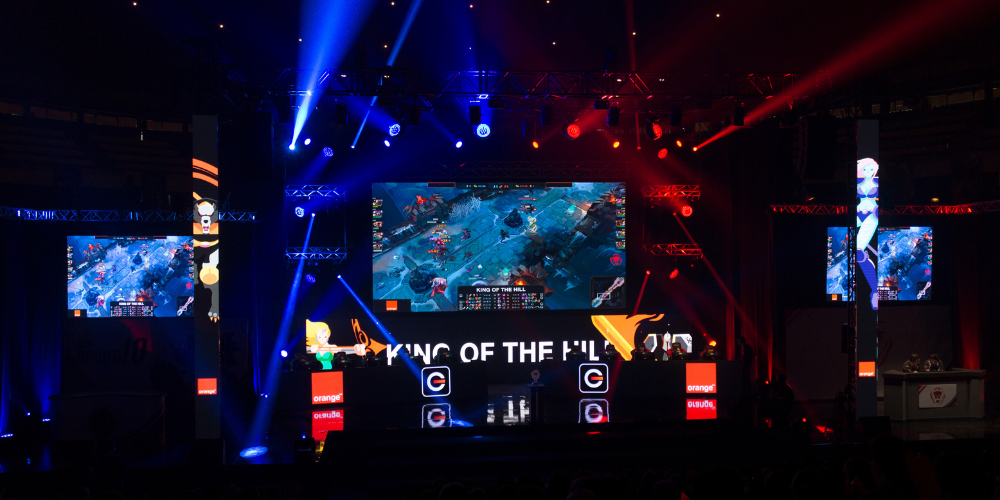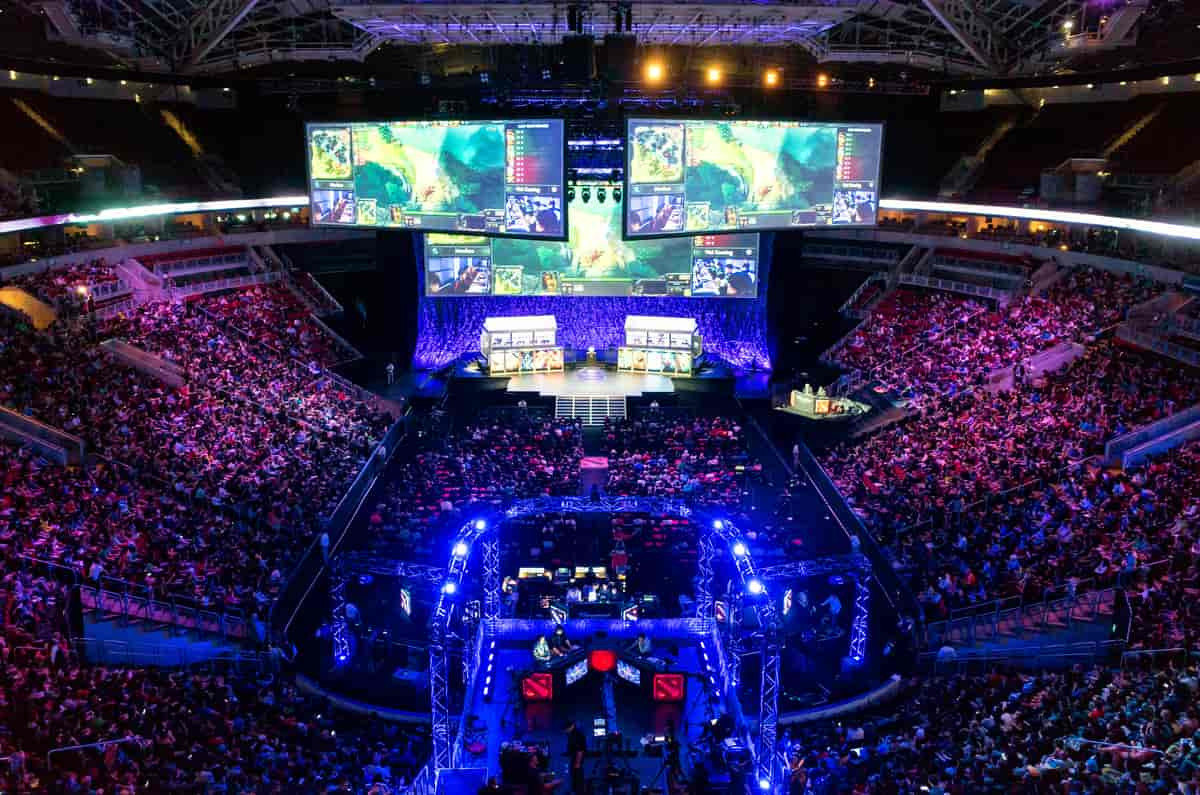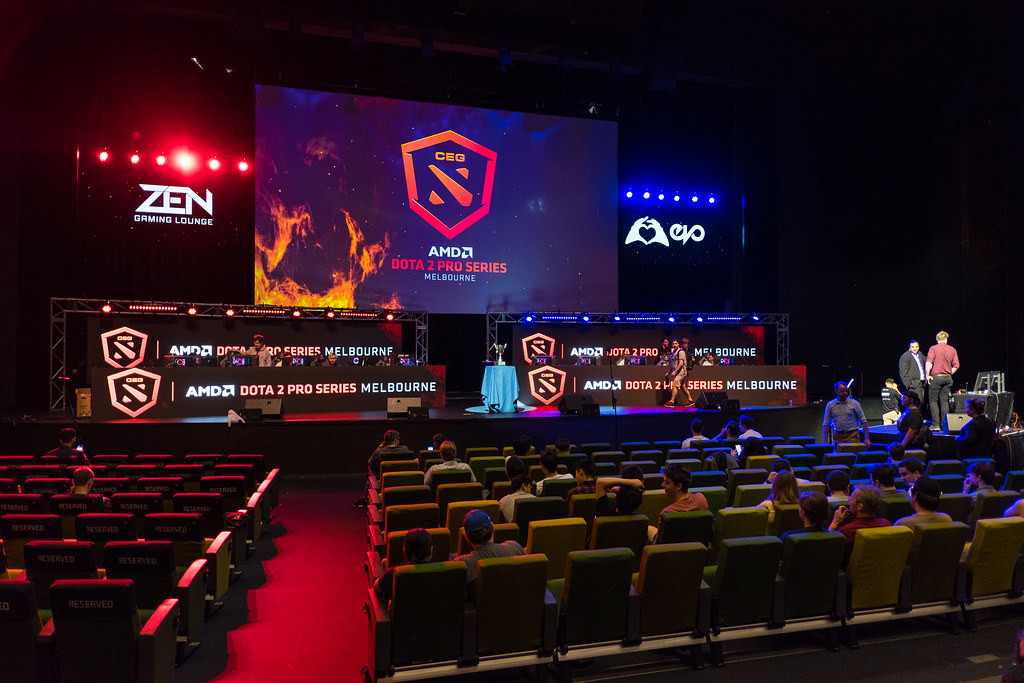Exploring the Phenomenon of Esports: A Comprehensive Guide to Competitive Gaming and its Leading Titles
- May 16, 2023
- 489

Esports, or electronic sports, is a form of competition where professional gamers compete against each other in various video games. The concept of competitive gaming dates back to the early 1970s, with the first known video game competition taking place at Stanford University in 1972.
However, it wasn't until the late 1990s and early 2000s that esports began to gain traction as a legitimate form of entertainment and competition, thanks to the rise of the Internet and advancements in gaming technology.
Fast forward to the present day, and esports has evolved into a multi-billion-dollar industry, with millions of fans around the world and a plethora of professional teams and players. Major tournaments and leagues now take place regularly, offering substantial cash prizes for the winners and attracting significant media attention.

Additionally, esports has garnered interest from traditional sports organizations, with many investing in or partnering with esports teams and leagues. This rapid growth and mainstream acceptance have solidified esports as a legitimate and exciting form of competitive entertainment.
The Structure of Esports: Tournaments, Leagues, and Teams
Esports is organized in a fashion similar to traditional sports, with various leagues, tournaments, and teams participating in a wide variety of video games. Tournaments can range from small, local events to massive, international competitions with millions of dollars at stake. Some of the most prestigious esports events include The International (Dota 2), the League of Legends World Championship, and the Overwatch League Grand Finals.
Esports leagues often follow a seasonal format, with teams competing against one another over the course of several months to determine the overall champion. In addition to leagues, many esports organizations host invitational events, where top teams and players from around the world are invited to compete for cash prizes and prestige.
Esports teams typically consist of professional players who compete on behalf of an organization. These organizations often provide their players with salaries, housing, and other resources to aid in their competitive endeavors. Many teams are sponsored by major companies, such as Intel, Samsung, and Mercedes-Benz, which further helps to legitimize the esports industry and provide financial support for its continued growth.
Popular Esports Titles: A Diverse Array of Competitive Games
Esports encompasses a wide variety of video game genres, from first-person shooters (FPS) and real-time strategy (RTS) games to multiplayer online battle arenas (MOBA) and fighting games. Some of the most popular esports titles include:
- League of Legends - A MOBA game developed by Riot Games, League of Legends is one of the most popular and successful esports titles in the world, boasting millions of active players and a massive professional scene.
- Dota 2 - Another MOBA title, Dota 2 is the successor to the original Defense of the Ancients (DotA) mod for Warcraft III. The game is known for its deep strategy and complex gameplay, as well as its annual tournament, The International, which offers the largest prize pool in esports history.
- Counter-Strike: Global Offensive - A first-person shooter developed by Valve, CS:GO is the latest iteration in the long-running Counter-Strike series. Its fast-paced, team-based gameplay has made it a favorite among esports fans and competitors alike.
- Overwatch - A team-based FPS developed by Blizzard Entertainment, Overwatch has gained a massive following since its release in 2016. The game's unique cast of characters and emphasis on teamwork have made it a popular choice for esports competition, with the Overwatch League serving as its premier professional circuit.
- Street Fighter V - The latest entry in Capcom's iconic fighting game series, Street Fighter V has been a staple of the esports fighting game community since its release in 2016. The game's fast-paced, one-on-one battles provide an intense and exciting competitive experience for both players and spectators.
The Future of Esports: Continued Growth and Mainstream Acceptance
 As esports continues to grow in popularity and profitability, the industry is expected to become an even more significant force in the world of entertainment and competition. With the advent of new technologies, such as virtual reality and augmented reality, the potential for esports to evolve and innovate is seemingly limitless. Additionally, as more traditional sports organizations and major companies continue to invest in esports, the industry's legitimacy and mainstream acceptance are likely to keep expanding.
As esports continues to grow in popularity and profitability, the industry is expected to become an even more significant force in the world of entertainment and competition. With the advent of new technologies, such as virtual reality and augmented reality, the potential for esports to evolve and innovate is seemingly limitless. Additionally, as more traditional sports organizations and major companies continue to invest in esports, the industry's legitimacy and mainstream acceptance are likely to keep expanding.
The future of esports also holds the potential for further integration with traditional sports, as evidenced by the inclusion of esports events in the Asian Games and the ongoing discussions surrounding its potential inclusion in the Olympic Games. As the lines between traditional sports and esports continue to blur, the world of competitive gaming is poised to become an even more prominent and influential part of the global sporting landscape.
Conclusion: Embracing the Excitement of Esports
Esports has come a long way since its humble beginnings, and it shows no signs of slowing down. With an ever-growing fan base, increasing mainstream recognition, and a diverse array of competitive games, esports has solidified its place as a thrilling and captivating form of entertainment.
As the industry continues to evolve and expand, it presents a unique opportunity for fans, players, and organizations alike to engage with and embrace the exciting world of competitive gaming. Whether you're a casual fan, an aspiring professional player, or a seasoned esports veteran, there's never been a better time to dive into the exhilarating phenomenon that is esports.